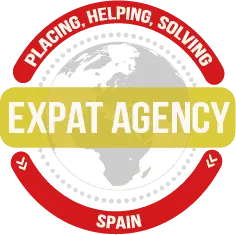How To Switch A Non-Lucrative Visa To A Self-Employed Visa In Spain
Understanding the Difference: Non-Lucrative vs. Self-Employed Visas
Before diving into the switch, it’s crucial to understand the fundamental differences between these visa types:
- Non-Lucrative Visa: This visa allows you to reside in Spain without working for a Spanish employer. You must demonstrate sufficient financial means to support yourself without needing employment.
- Self-Employed Visa (Autónomo Visa): This visa permits you to work for yourself in Spain, establishing your own business or freelancing. You need to demonstrate a viable business plan, sufficient financial resources, and meet specific requirements based on your chosen profession.
The most important question: When Will I Be Able To Switch A Non-Lucrative Visa To A Self-Employed Visa In Spain?
These are the main requirements to switch a non-lucrative visa to a self-employed visa in Spain, according to Organic Law 4/2000, of January 11:
- Having resided in the country for at least one year. Exceptionally, the modification may be requested without the one-year period having elapsed when a need to work due to unforeseen circumstances to guarantee their subsistence can be proven.
- Having no criminal record in Spain.
- Not being prohibited from entering Spain and not be considered inadmissible in the territorial space of countries with which Spain has signed an agreement to that effect.
- Meeting the requirements established by current legislation for the opening and operation of the projected activity. Please read below*.
- Possessing the required professional qualification or accredited experience, sufficient in the exercise of the professional activity, as well as, where applicable, membership of a professional body when required.
- Being able to demonstrate that the planned investment is sufficient and its impact, if any, on job creation.
- Being able to demonstrate that you have sufficient financial resources for their maintenance and accommodation, once those necessary for the maintenance of the activity have been deducted.
- For retail commercial activities and the provision of services listed in the Annex of Law 12/2012, carried out in permanent establishments with a usable area equal to or less than 300 square meters, a responsible declaration or prior notification (under the terms of Article 71.bis of Law 30/1992) and, where applicable, proof of payment of the corresponding tax.
- For all other activities and professional service provisions, a list of the authorizations or licenses required for the installation, opening, or operation of the projected activity or for the professional practice, indicating the status of the procedures for their obtaining, including, where applicable, certifications of application to the corresponding bodies.
- A copy of the documentation accrediting possession of the legally required qualifications and, where applicable, professional qualification for the exercise of the profession.
- Accreditation of having sufficient economic investment, or a commitment of support from financial institutions or others.
- A project of the establishment or activity to be carried out, indicating the planned investment, its expected profitability and, where applicable, the jobs whose creation is foreseen.
| Organization Name | Abbreviation |
|---|---|
| National Federation of Associations of Entrepreneurs and Self-Employed Workers | ATA |
| Union of Professionals and Self-Employed Workers | UPTA |
| Intersectoral Confederation of Self-Employed Workers of the Spanish State | CIAE |
| Organization of Professionals and Self-Employed Workers | OPA |
| Union of Associations of Self-Employed Workers and Entrepreneurs | UATAE |
The Process of Switching Visas
Switching from a non-lucrative to a self-employed visa isn’t a simple matter of submitting a new application. You’ll need to follow a specific procedure, usually involving:
Meeting the Requirements: This is the most critical step. You must fulfill all the criteria for a self-employed visa before you begin the application process. Failure to do so will result in rejection. Key requirements include:
- Business Plan: A comprehensive and realistic business plan detailing your business activity, market analysis, financial projections, and anticipated turnover. This plan must demonstrate the viability and sustainability of your business. Seeking professional advice on creating a strong business plan is highly recommended.
- Financial Resources: You’ll need to prove sufficient funds to support yourself and your business during the initial stages. This usually involves bank statements, proof of investments, or other financial documentation. The exact amounts required will depend on your business.
- Professional Qualifications (if applicable): Depending on your chosen profession, you may need specific qualifications or licenses to operate legally in Spain. This might involve obtaining professional registration with a relevant Spanish body.
- No Criminal Record: A clean criminal record check from your country of origin and Spain (if required).
- Sufficient Spanish Language Skills: While not always explicitly stated, demonstrating a working knowledge of Spanish is advantageous and can significantly improve your chances of success.
Preparing and Submitting Your Application: Once you’ve met all the requirements, you’ll need to gather all the necessary documentation and submit it to the Spanish Consulate or Embassy in your country of residence (or the relevant Spanish office if you are already in Spain). Ensure all documents are translated into Spanish by an official translator.
- Visa Application Fee: Remember to pay the applicable visa application fees.
- Processing Time: Be prepared for a waiting period. Processing times can vary depending on the volume of applications and other factors.
- Approval or Rejection: You’ll receive notification regarding the outcome of your application. If rejected, carefully review the reasons for rejection and consider reapplying after addressing the issues.
Seeking Professional Guidance:
Given the complexities of Spanish visa regulations, seeking professional advice is strongly recommended. A qualified immigration office specializing in Spanish visa applications can guide you through the process, ensuring you meet all the requirements and avoid potential errors. An improperly prepared application can lead to delays or rejection.
Important Considerations
- NIE (Número de Identificación de Extranjero): You’ll need an NIE, your Spanish tax identification number, to legally operate a business in Spain. Obtaining this number is usually part of the visa application process.
- Social Security Contributions (Seguridad Social): As a self-employed individual in Spain, you are required to contribute to the social security system.
- Taxes: Understand your tax obligations as a self-employed individual in Spain. Familiarize yourself with the Spanish tax system and consider consulting a tax advisor.
















